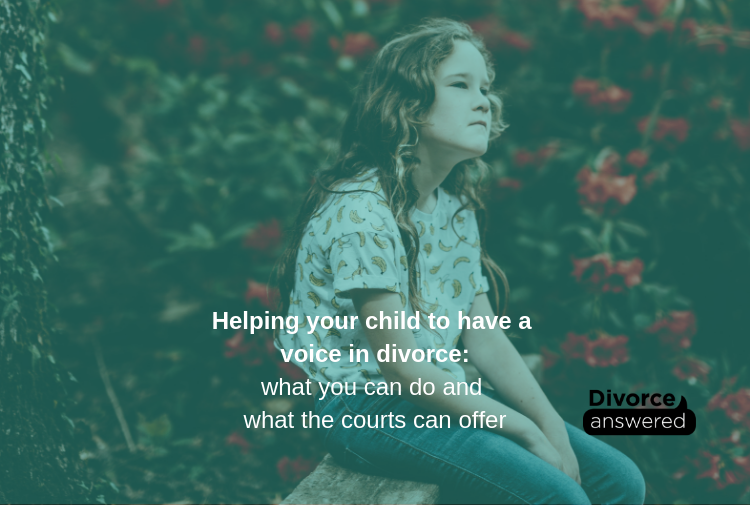
Rachael Scharrer, divorce and relationship expert and separation strategist, appreciates that children of different ages are more opinionated about what happens to them in the divorce process. How you as a parent can help them and empower them to have a voice or feel heard is essential. Learn more about what you can do and what the courts can offer
The decisions that you make today makes an impact on your future and the future of your children. Sometimes your decisions are easy and straightforward and other times rather complex and requiring additional consultations and deliberation. Complexities occur when children believe themselves to be old enough and to have an opinion on what happens with them. Many parents wonder: how old should a child be to make a decision about what happens to them in the divorce? Is it appropriate for a child to be heard in the parenting arrangements? So, how can you help your child have a voice in your divorce and allow their opinions to be heard?
The age a child is when their parents divorce varies and the range can be from pre-birth to in their 50s (or later). There is never a perfect or right time to end a relationship and change the family dynamics. What is important is for your child to always be happy, feel loved by you and protected from the divorce.
Some people believe that when a child turns 13 years old they can decide with whom they live and whether they see their parents. This is a fallacy and not a hard and fast rule
Depending on what your relationship was with the other parent when you were together, what your child has been exposed to and experienced during the relationship and how successfully you are able to co-parenting after the relationship ends will play a part in how vocal your child is about future parenting arrangements. At any of the stages mentioned, your child may have been affected and carry hurt, a burden or other emotional trauma that may encourage them to have a strong opinion.
If your child is vocal about parenting arrangements, what is going to happen to them and they are, say, aged 5, 8 or 11 years old, how are their opinions heard by their parents and reflected in the parenting arrangements?
The Courts solve this with several avenues, including:
A word of caution: don’t try to influence your child and their thinking towards he other parent in a negative way. It becomes resounding to professionals when a child begins to mimic what they hear you say.
From your perspective, it is helpful if you are:
You can achieve parenting plans and parenting orders that:
Remember that parenting plans and orders are there to change and grow as your child and their needs change and grow. You can create and update your own parenting orders with ease using the Divorce Answered Parenting Plan. It’s a click-the-clause parenting plan which allows you to choose from the suggested clauses or create your own. Learn more about Parenting Plans and how to create your own affordably here.